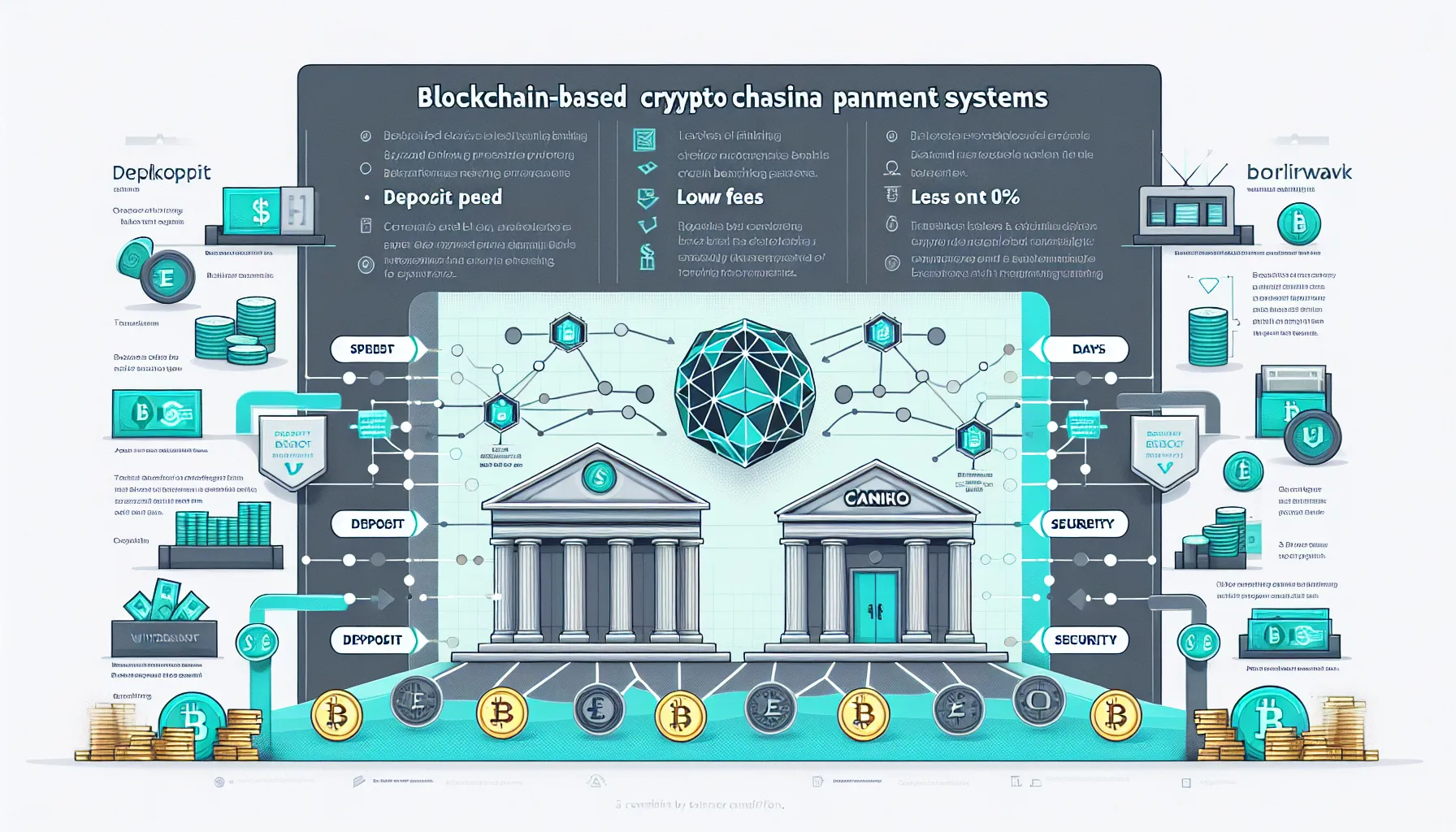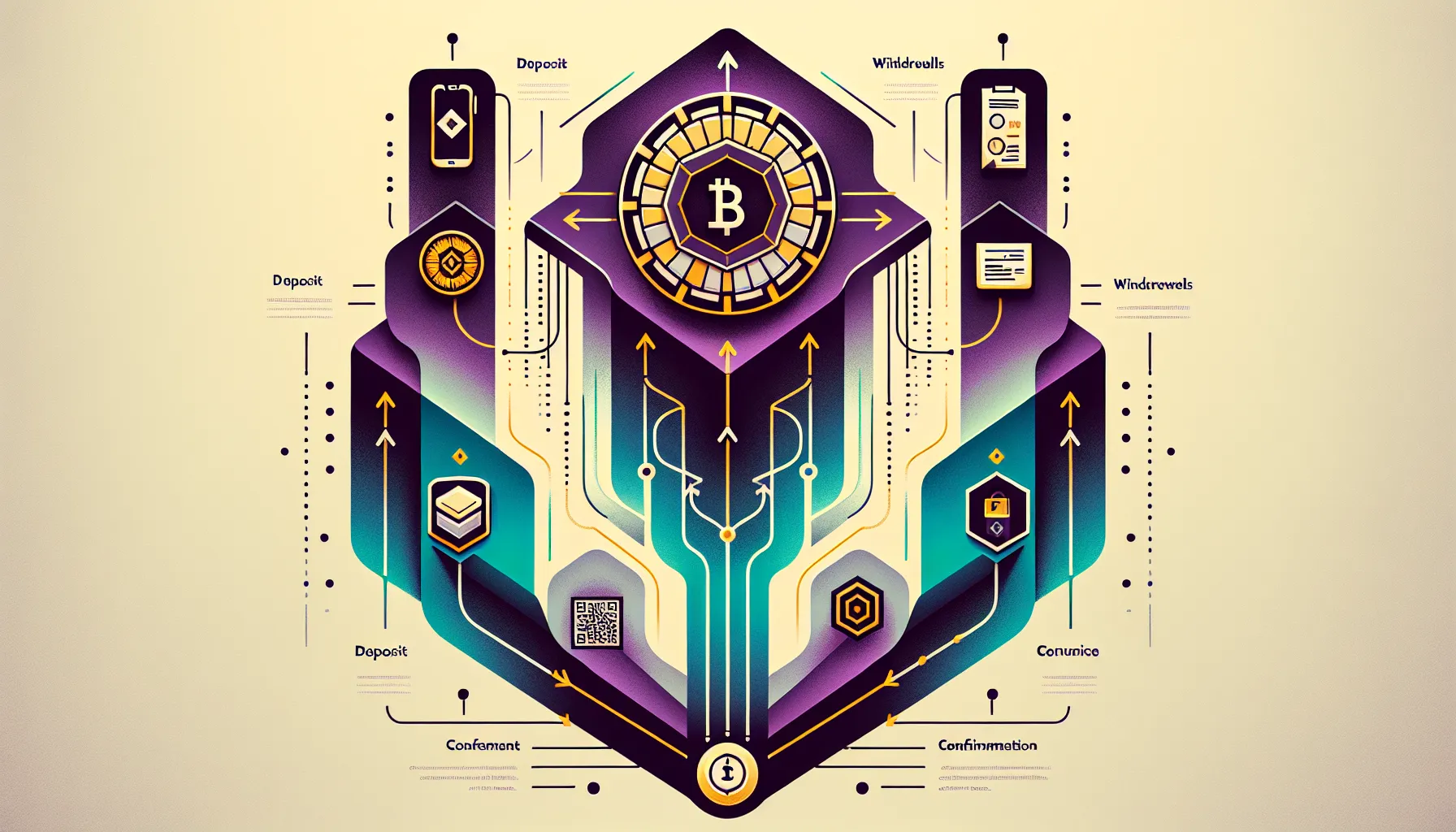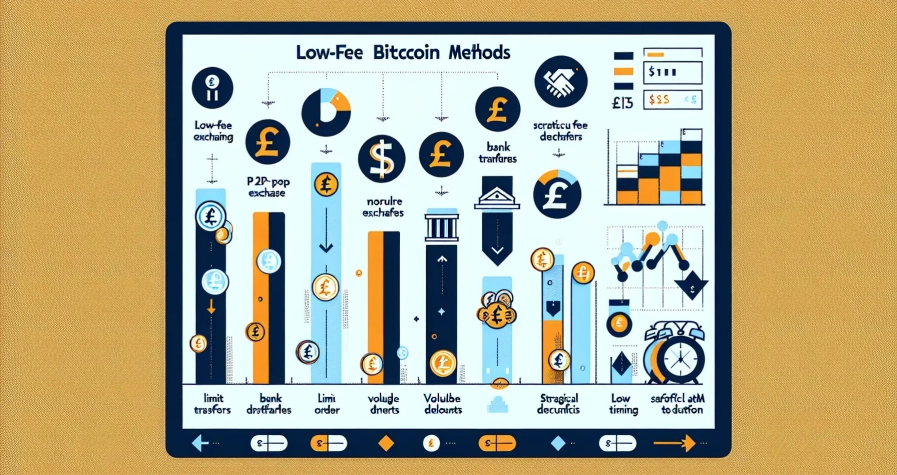Crypto casinos have changed the game when it comes to online gambling transactions. Gone are the days of waiting ages for bank transfers or worrying about hefty processing fees eating into your winnings. Instead, blockchain technology has ushered in an era of lightning-fast deposits and withdrawals, often with minimal costs attached.
But how exactly do crypto casino payouts work? Whether you’re a seasoned player or someone curious about dipping their toes into the world of digital currency gambling, understanding the mechanics behind deposits, withdrawals, and associated fees is essential. From connecting your wallet to navigating network confirmations and understanding why some transactions take longer than others, there’s a fair bit to unpack. This guide breaks down the entire process, so players know exactly what to expect when moving funds in and out of crypto casinos.
Key Takeaways
- Crypto casino payouts are processed via blockchain technology, offering faster transactions and lower fees compared to traditional banking methods.
- Deposits typically require one to six network confirmations depending on the cryptocurrency, with most completing within minutes to an hour.
- Withdrawals involve verification requirements and may be subject to minimum and maximum limits set by the casino.
- Network transaction fees vary significantly by cryptocurrency and network congestion, with stablecoins on faster blockchains offering the most cost-effective options.
- Understanding how crypto casino deposits, withdrawals, and fees work helps players avoid common issues like delayed payouts and incorrect wallet addresses.
Understanding Crypto Casino Payment Systems

At their core, crypto casinos operate on blockchain-based payment systems. Rather than relying on traditional banking infrastructure, these platforms process transactions using cryptocurrencies like Bitcoin, Ethereum, Tether (USDT), and a growing list of altcoins. Each transaction is recorded on a decentralised ledger, which makes the process transparent, secure, and incredibly difficult to tamper with.
One of the standout features of blockchain payments is speed. Traditional online casinos can take anywhere from several hours to multiple business days to process withdrawals, depending on the payment method. Crypto casinos, on the other hand, often handle transactions in minutes, sometimes even instantly. This near-instant processing is a massive draw for players who don’t want to wait around for their winnings.
Another major advantage is cost. Conventional payment methods often come with processing fees that can add up quickly, especially for international transactions. Crypto transactions typically incur much lower fees, often less than 1% of the transaction value, making them an attractive option for both casinos and players alike.
Beyond speed and cost, there’s the matter of security and fraud prevention. Blockchain technology uses cryptographic techniques that make it incredibly secure. Once a transaction is confirmed on the blockchain, it’s virtually impossible to reverse or alter. This provides peace of mind for players and operators, reducing the risk of chargebacks and fraudulent activity that plagues traditional payment systems.
Finally, crypto payments are borderless. Players from nearly any corner of the globe can deposit and withdraw funds without worrying about currency conversions, banking restrictions, or geo-blocking. This openness has helped crypto casinos carve out a unique space in the online gambling world.
How Crypto Casino Deposits Work
Depositing funds into a crypto casino is straightforward once you’ve got the hang of it. The process begins when a player initiates a deposit from their personal cryptocurrency wallet to a unique address provided by the casino. This address is essentially a string of alphanumeric characters that acts like a digital postbox, funds sent to this address will land in the player’s casino account.
Most crypto casinos support a range of cryptocurrencies, though the exact selection varies from one platform to another. Bitcoin and Ethereum are almost universally accepted, while stablecoins like USDT and USDC are becoming increasingly popular due to their price stability. Some casinos also accept lesser-known altcoins, catering to players who prefer niche digital currencies.
Connecting Your Crypto Wallet
To make a deposit, players need to connect their external crypto wallet to the casino. Popular wallets include MetaMask, Trust Wallet, Coinbase Wallet, and hardware wallets like Ledger or Trezor. The process is simple: the casino generates a unique deposit address for the chosen cryptocurrency, and the player copies this address into their wallet application.
From there, the player specifies the amount they wish to deposit and initiates the transfer. It’s crucial to double-check the address before hitting send, crypto transactions are irreversible, and sending funds to the wrong address can result in permanent loss. Some wallets and casinos support QR codes, which simplify the process and reduce the risk of errors.
Once the transaction is broadcast to the blockchain, it enters a queue where miners (or validators, depending on the network) confirm its validity and add it to the ledger.
Deposit Processing Times and Confirmations
Deposit processing times depend largely on the cryptocurrency in question and the state of the blockchain network. Most deposits are confirmed within minutes, but network congestion can slow things down. During periods of high activity, like a major market rally or a popular NFT drop, transaction times can stretch longer.
Each cryptocurrency requires a certain number of confirmations before the casino credits the funds to the player’s account. A confirmation occurs each time a new block is added to the blockchain after the one containing the player’s transaction. Bitcoin, for example, typically requires between three and six confirmations, which can take anywhere from 30 minutes to an hour. Ethereum deposits might only need one or two confirmations, often completing in just a few minutes.
The number of confirmations required is a security measure. More confirmations mean the transaction is increasingly secure and less likely to be reversed due to a blockchain reorganisation. Casinos set these thresholds to protect themselves from double-spending attacks and other fraudulent activity.
How Crypto Casino Withdrawals Work
Withdrawing funds from a crypto casino follows a similar, but slightly more involved, process compared to deposits. When a player is ready to cash out, they request a transfer from the casino’s wallet to their own external wallet. This involves specifying the withdrawal address, the amount, and the cryptocurrency they wish to receive.
It’s essential to use the correct wallet address for the cryptocurrency being withdrawn. Sending Bitcoin to an Ethereum address, for instance, can result in irreversible loss of funds. Most casinos provide clear instructions and warnings to help players avoid these mistakes.
Withdrawal Request Process
The withdrawal process typically begins in the player’s account dashboard. There’s usually a dedicated section for managing funds, where players can select the withdrawal option, choose their cryptocurrency, and enter the relevant details.
Some casinos require players to reconfirm their identity at this stage, particularly for first-time or large withdrawals. This is part of Anti-Money Laundering (AML) and Know Your Customer (KYC) compliance measures, which help prevent fraud and meet regulatory requirements. While this can add a bit of time to the process, it’s an important safeguard.
Once the withdrawal request is submitted, it enters the casino’s internal review queue. Depending on the platform’s policies and current workload, this review can take anywhere from a few minutes to several hours. Some casinos offer instant or near-instant withdrawals for verified accounts, while others may take longer if additional checks are needed.
Verification Requirements and Withdrawal Limits
Many crypto casinos require identity verification before processing withdrawals, especially for larger amounts or first-time requests. Players might need to submit a government-issued ID, proof of address (like a utility bill), and sometimes even a selfie holding their ID. While this can feel cumbersome, it’s designed to protect both the player and the casino from fraud.
Withdrawal limits are another consideration. Casinos often set minimum and maximum withdrawal amounts, which can vary depending on the cryptocurrency and the player’s account status. For example, a casino might have a minimum withdrawal of 0.001 BTC and a maximum of 10 BTC per transaction. High rollers or VIP members may enjoy higher limits, while newer players might face stricter caps until they’ve built up a track record.
These limits exist for a few reasons: they help casinos manage liquidity, reduce the risk of large-scale fraud, and comply with financial regulations. Players should always review the terms and conditions to understand the specific limits that apply to them.
Withdrawal Processing Times by Cryptocurrency
Withdrawal speeds vary depending on several factors, including the cryptocurrency, network congestion, and the casino’s internal procedures. Generally speaking, most withdrawals are processed within 10 minutes to a few hours once the casino approves the request.
Bitcoin withdrawals can take longer during peak network times, as transactions require multiple confirmations and the network can become congested. Ethereum, while typically faster, can also slow down during periods of high demand, particularly when gas fees spike.
Stablecoins like USDT, especially those on faster blockchains like Tron or Binance Smart Chain, often offer the quickest withdrawal times. These networks are designed for speed and lower fees, making them ideal for players who prioritise quick access to their funds.
It’s also worth noting that some casinos batch their withdrawals, processing them at set intervals throughout the day rather than individually. This can add a bit of waiting time, but it’s a common practice that helps streamline operations.
Fees Associated With Crypto Casino Transactions
While crypto transactions are generally cheaper than traditional payment methods, they aren’t entirely free. Both deposits and withdrawals come with associated costs, and understanding these fees helps players manage their bankroll more effectively.
Network Transaction Fees
Every cryptocurrency transaction incurs a network fee, also known as a miner’s fee or gas fee. This fee compensates miners or validators for processing and confirming the transaction on the blockchain. The size of the fee varies depending on the cryptocurrency, the current state of the network, and the transaction’s urgency.
Bitcoin and Ethereum are notorious for having fluctuating network fees. During periods of high congestion, these fees can spike dramatically. For example, a Bitcoin transaction might cost a few pence under normal conditions but jump to several pounds during a busy period. Ethereum’s gas fees can be particularly volatile, sometimes reaching eye-watering levels during network congestion or popular token launches.
For smaller withdrawals, network fees can represent a significant percentage of the total amount. A £2 fee on a £20 withdrawal is 10%, a hefty chunk. This is why many players prefer stablecoins on faster, cheaper networks like Tron or Binance Smart Chain, where fees often stay below a few pence regardless of network activity.
Players can sometimes choose the fee level when initiating a transaction from their wallet. Higher fees result in faster confirmation times, while lower fees might mean waiting longer. Casinos, but, typically set the fee automatically based on current network conditions.
Casino Processing Fees
Plus to network fees, some casinos charge their own processing fees for withdrawals. These fees can be structured in a few different ways: a flat fee (e.g., £2 per withdrawal), a percentage of the withdrawal amount, or a tiered system based on the cryptocurrency or account level.
That said, many crypto casinos waive processing fees altogether, especially for larger withdrawals or VIP players. Fee-free withdrawals are a competitive advantage, and casinos often highlight this as a perk to attract and retain players.
It’s always worth checking the casino’s fee structure before making a withdrawal. Some platforms provide a detailed breakdown of fees during the withdrawal process, while others list them in the terms and conditions. Knowing what to expect helps avoid unpleasant surprises.
Factors Affecting Crypto Payout Speed
Several factors influence how quickly a crypto casino payout reaches a player’s wallet. Understanding these variables can help set realistic expectations and avoid frustration.
First and foremost is network congestion. Blockchain networks can only process a limited number of transactions per second, and during busy periods, transactions queue up. This is particularly noticeable with Bitcoin and Ethereum, where high demand can lead to slower confirmation times and higher fees.
The number of confirmations required by the casino also plays a role. As mentioned earlier, more confirmations mean greater security, but they also mean longer wait times. A casino requiring six Bitcoin confirmations will naturally take longer to process a withdrawal than one requiring just two.
Casino internal processing times are another consideration. Even after a withdrawal request is approved, the casino might batch transactions or conduct additional security checks before broadcasting the transaction to the blockchain. Some platforms process withdrawals instantly, while others review each request manually, a process that can add hours or even days.
Finally, KYC and AML checks can introduce delays, especially for first-time or unusually large withdrawals. If a casino flags a transaction for additional verification, the player might need to submit documents or answer questions before the withdrawal proceeds. While this can be inconvenient, it’s a necessary part of operating a legitimate, regulated platform.
Common Issues and How to Resolve Them
Even though the many advantages of crypto casino payouts, things don’t always go perfectly. Here are some common issues players encounter and practical steps to resolve them.
Delayed withdrawals are perhaps the most frequent complaint. If a withdrawal is taking longer than expected, the first step is to check the blockchain status using a block explorer like Blockchain.com or Etherscan. This will show whether the transaction has been broadcast and how many confirmations it has received. If the transaction hasn’t been broadcast yet, the delay is likely on the casino’s end, contact their support team for clarification.
It’s also worth double-checking that the withdrawal address was entered correctly. While this won’t speed up a pending transaction, it can prevent future headaches.
Verification holds are another common issue. If a casino requests identity verification before processing a withdrawal, players should act quickly to provide the necessary documents. Most casinos process verification requests within 24 to 48 hours, though it can take longer during busy periods. Keeping documents handy and ensuring they’re clear and legible helps speed things along.
Withdrawal limits can catch players off guard, especially those attempting to cash out large winnings. If a withdrawal exceeds the casino’s maximum limit, the solution is usually to break the total amount into multiple smaller withdrawals. This can be tedious, but it’s often the only option. Players should review the casino’s terms and conditions to understand the limits and plan accordingly.
Another occasional hiccup is incorrect cryptocurrency selection. Sending the wrong coin to an incompatible wallet can result in permanent loss of funds. Always verify that the withdrawal cryptocurrency matches the receiving wallet’s network. If a mistake has been made, contact the casino’s support team immediately, while recovery is rare, some platforms have procedures in place to assist in specific situations.
Conclusion
Crypto casino payouts offer a compelling alternative to traditional payment methods, combining speed, security, and cost-effectiveness in a way that few other systems can match. Blockchain technology enables near-instant transactions with minimal fees, while the decentralised nature of cryptocurrencies ensures transparency and fraud resistance.
But, players must remain mindful of the nuances involved. Withdrawal limits, verification requirements, network fees, and casino-specific policies all play a role in the overall experience. Understanding how deposits and withdrawals work, from connecting a wallet to navigating confirmations and fees, empowers players to make informed decisions and avoid common pitfalls.
As the crypto casino industry continues to evolve, improvements in blockchain scalability and casino infrastructure promise even faster, cheaper, and more seamless payouts. For now, though, a bit of knowledge goes a long way in ensuring a smooth and satisfying experience. Whether depositing funds for a quick session or cashing out after a big win, knowing what to expect makes all the difference.
Frequently Asked Questions
How long do crypto casino withdrawals take to process?
Most crypto casino withdrawals process within 10 minutes to a few hours once approved. Bitcoin may take 30–60 minutes due to confirmation requirements, whilst stablecoins on networks like Tron often complete in just minutes. Network congestion can extend processing times during peak periods.
What fees are charged for crypto casino deposits and withdrawals?
Crypto casino transactions incur network fees (miner or gas fees) that vary by cryptocurrency and network congestion, typically under 1% of the transaction value. Some casinos charge additional processing fees for withdrawals, though many waive these fees, especially for VIP players or larger amounts.
Can I withdraw my crypto casino winnings instantly?
Some crypto casinos offer instant or near-instant withdrawals for verified accounts, though most require internal review taking minutes to hours. Factors like KYC verification, withdrawal limits, and blockchain confirmations affect speed. Stablecoins on faster networks typically provide the quickest withdrawals.
Do crypto casinos require identity verification for withdrawals?
Many crypto casinos require KYC verification, particularly for first-time or large withdrawals, as part of anti-money laundering compliance. Players may need to submit government-issued ID, proof of address, and sometimes a selfie. This process typically takes 24–48 hours to complete.
Which cryptocurrency is best for fast casino withdrawals?
Stablecoins like USDT on Tron or Binance Smart Chain offer the fastest withdrawal times with minimal fees, often completing in minutes. Ethereum is faster than Bitcoin but can have high gas fees during congestion. Bitcoin typically takes longest due to multiple confirmation requirements.
What happens if I send crypto to the wrong casino wallet address?
Sending cryptocurrency to an incorrect or incompatible wallet address typically results in permanent, irreversible loss of funds. Always verify the address and cryptocurrency type match before sending. If a mistake occurs, contact casino support immediately, though recovery options are extremely limited.









